Nondiscrimination Canons Augmented and Extended to Employment
Early in this convention we became aware of resolution A091. It sought to take the nondiscrimination categories, including ‘gender identity and expression’ whose addition we supported and celebrated in 2012, and to apply them to clergy appointment and hiring processes. We were disappointed when this resolution did not make it out of Committee #15 on Ministry. But then later we learned that a similar resolution had been assigned to Committee #2 on Constitution and Canons. It was not only similar, it was stronger. It had also made it out of committee. In fact, when we learned about it, it had already passed the House of Bishops (we don’t know if it was discussed or if it passed on their consent calendar). It was resolution A284 (originally D026), sponsored by the Reverend Beth Scriven. As of last night it was on the consent calendar, but this morning it was removed along with several other resolutions, forcing it to come up for a floor vote. We scrambled in the midst of packing to help alert folks to please testify in support and were elated when it passed.
A284 does several things:
- It addresses two places in the canons, the “Rights of the Laity” Canon, I.17.5, and Canon III.1.2. The latter canon (previously only) addressed access to the discernment process toward ordination.
- In both canons it adds to the list of protected categories, specifically “family status (including pregnancy and child care plans).”
- To both Canon I.17.5 and Canon III.1.2 A284 adds the context of employment. In the latter canon the existing language that read “No person shall be denied access to the discernment process” now also has “or to any process for the employment, licensing, calling, or deployment.” The canon’s final sentence also has some slight additions: “No right to employment, licensing, ordination, call, deployment, or election is hereby established.”
This resolution was inspired in important ways by the #MeToo movement as it has been playing out in the Church. Testimony in its support included stories of how in interviews women have been asked questions that men are typically not – questions about family, children, pregnancy, and child care plans. We have heard testimony at this convention about how lesbian, gay, bisexual, and/or trans and nonbinary people have been asked additional questions about their relationship status, or have been let go from their positions once they have come out or begun transition. Earlier this week our own steering committee member and newly elected President of the Episcopal Rainbow The Reverend Gwen Fry, shared her story of losing her rector position in the Episcopal Diocese of Arkansas in the wake of her coming out as trans. We recommend reading it here in the Issues blog of the Consultation (the peace and justice coalition of which TransEpiscopal is a member). This Convention has also devoted considerable energy to the work of dismantling racism and renewing the Church's commitment to that work. Sexism, racism, ableism, xenophobia, homophobia, and transphobia -- all of these forms of oppression in all their permutations and intersections need to be dismantled. Our communal life together, embracing difference, is poised for renewal. This resolution makes an important new statement about our commitment to this process as a Church.
Studies of Employment, Compensation, and Career Development
D069 calls for the gathering of statistical information and stories about employment and compensation for LGBTQ clergy. Today the House of Deputies voted to concur with the Bishops who had passed it earlier this week (again, we don’t know if there was discussion or if it passed on their consent calendar). We were glad to connect with the statistician of the Church Pension Group Matthew Price along the way about the possibility of it becoming a report like one he worked on a decade ago, “Called to Serve.” Deputies the Reverend Vanessa Stickler-Glass and the Reverend M.E. Eccles, its respective sponsor and endorsers, spoke powerfully and movingly in its support this morning.
We had contributed to the construction of D069 and were glad to observe the passage of its sibling resolution – its inspiration, in fact – D005. It called for similar statistical information to be gathered on the basis of race and ethnicity. As we embrace difference across axes of oppression in the church, we need to take stock of where bias persists and gaps remain. Another resolution we learned about late in the game was A043. It acknowledges “that there has not been adequate investment in the career development of women, transgender, non-binary, and racial/ethnic minority clergy at multiple levels” and “that an appropriate interim body be assigned the task to study these concerns and make a report, including analysis and recommendation for improvements, to the 80th General Convention.” We very much appreciate our inclusion in this resolution and we look forward to being among those contributing to this study, and collaborating on its recommendations and outcomes.
Name Changes, Liturgy, Access and Advocacy
C022 Originating from the Diocese of California, this resolution calls upon Episcopalians to “support legislative, educational, pastoral, liturgical, and broader communal efforts that seek to end the pattern of violence against transgender people in general and transgender women in particular, calling attention especially to the rising violence against transgender women of color and gender non-conforming people.” It further calls congregations “to remove barriers to full participation in congregational life by making their gender-specific facilities and activities fully accessible to all, regardless of gender identity and expression.”
C054 Originating from the Diocese of Virginia and Province III, this resolution asks the Church to work with the Office of Formation in partnership with organizations such as Integrity (now the Episcopal Rainbow) and TransEpiscopal to establish “Guiding Principles for the Inclusion of Transgender and Non-Binary People in Dioceses, Parishes, Missions, Schools and Camps.”
A088 This resolution affirms trans and nonbinary people, as well as cisgender people in various life circumstances, in our ability to have our names and gender markers amended in Church records and to have certificates such as baptism and ordination reissued. The guidelines for doing so could be out as early as this year, or no later than the end of 2019.
A218 As of this writing we are aware that the Name Change Rite in the Book of Occasional Services is among a portion of that book slated to be released to the wider church soon, while other portions of that book receive additional attention.
A068 Prayer Book Revision ended up passing in a significantly modified form. A task force is slated to be created to begin that process, though it will receive significantly less funding than had originally been indicated. Gender expansive and inclusive language received more attention at this Convention than we have ever heard before, and it is clear that such language is a priority heading into this triennium.
B012 As we have reported in previous posts, the 79th General Convention took an important step forward in ensuring that sacramental marriage equality is accessible across the whole church. Several TransEpiscopal members testified at this Convention in its support.
The passage of these resolutions truly sends us out from the 79th General Convention with a sense of elation. We are all making our way forward together in what Presiding Bishop Michael Curry has called the Way of Love.
The Reverend Cameron Partridge, Diocese of California and TransEpiscopal Steering Committee Member

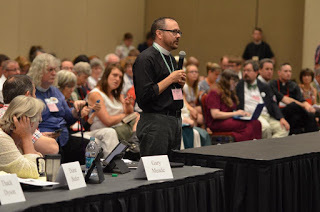
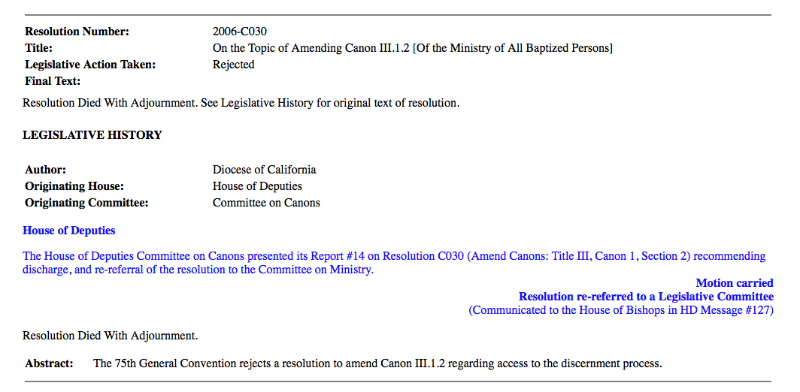
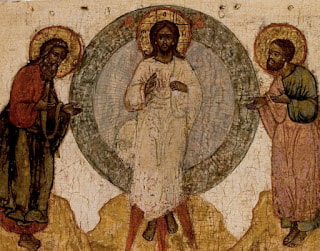
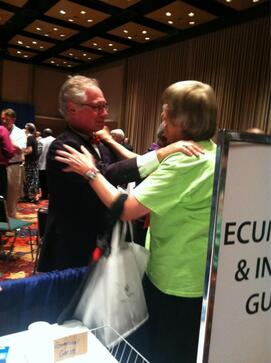
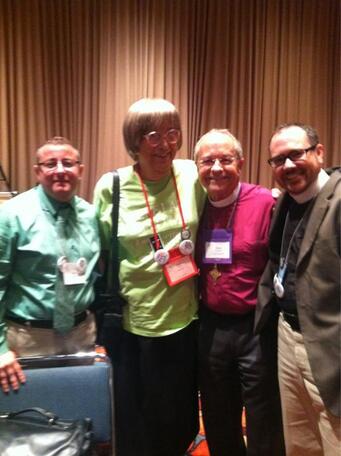
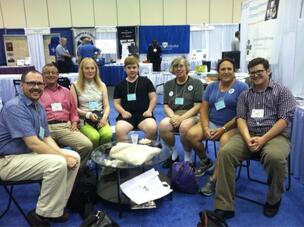
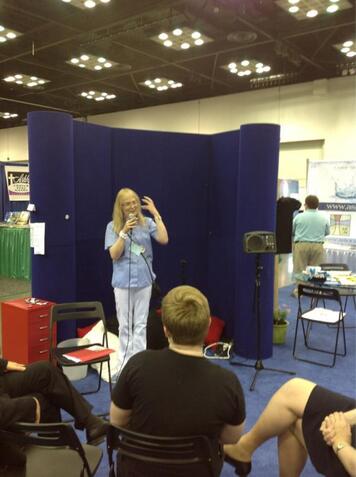
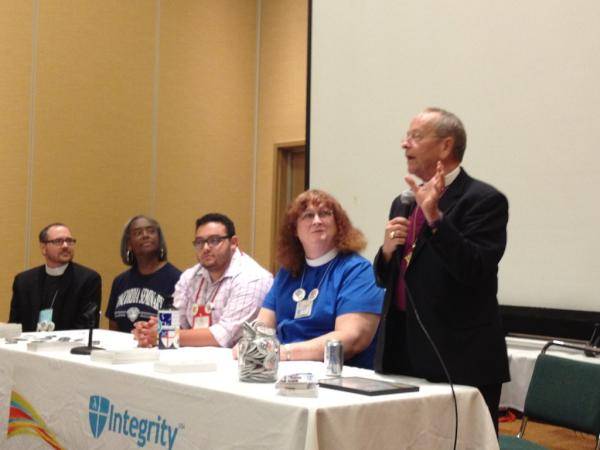

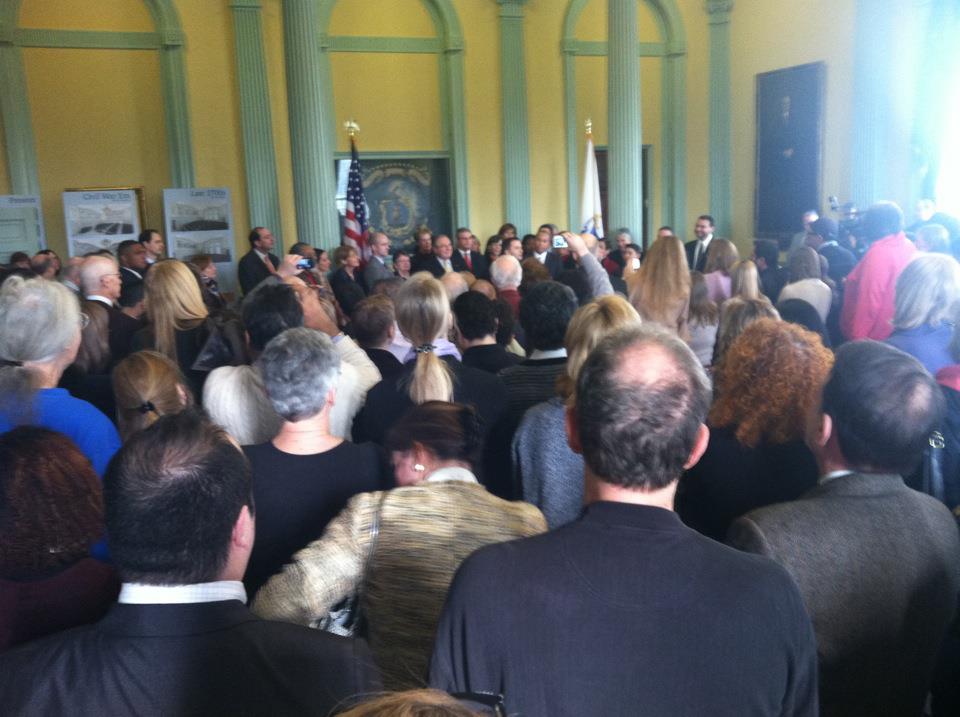
 RSS Feed
RSS Feed